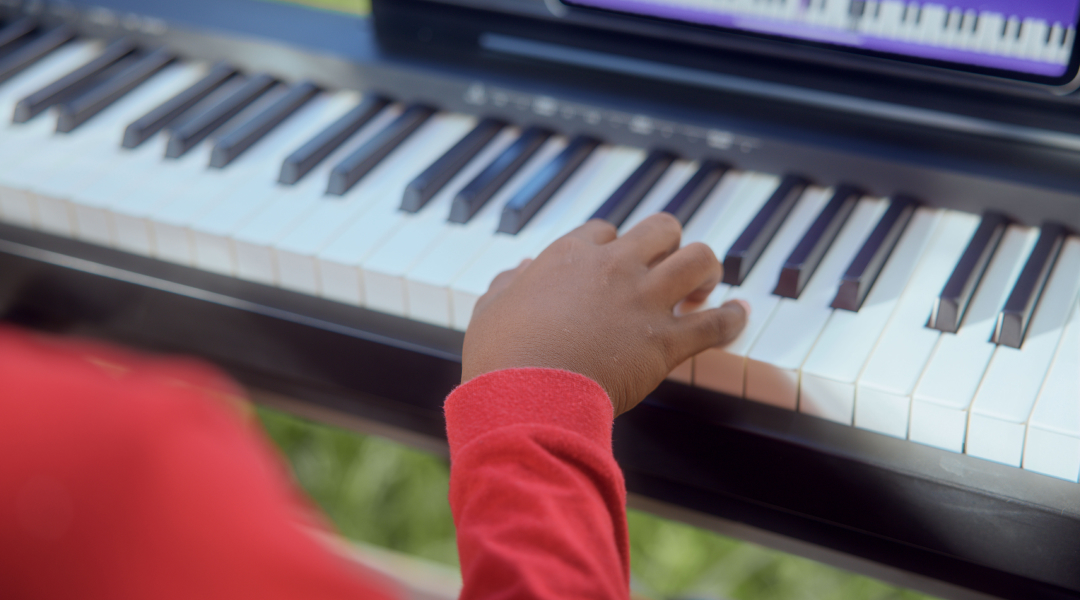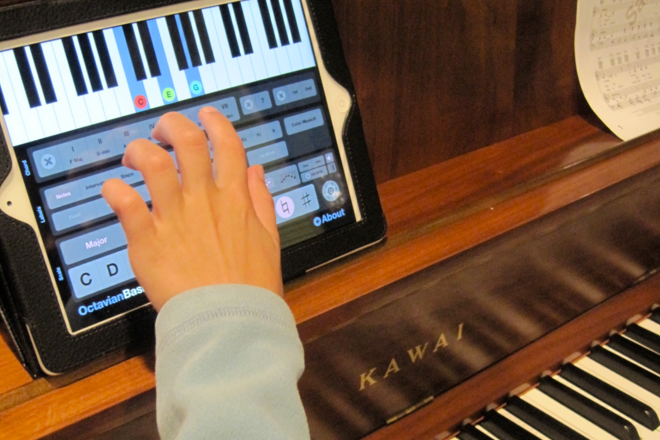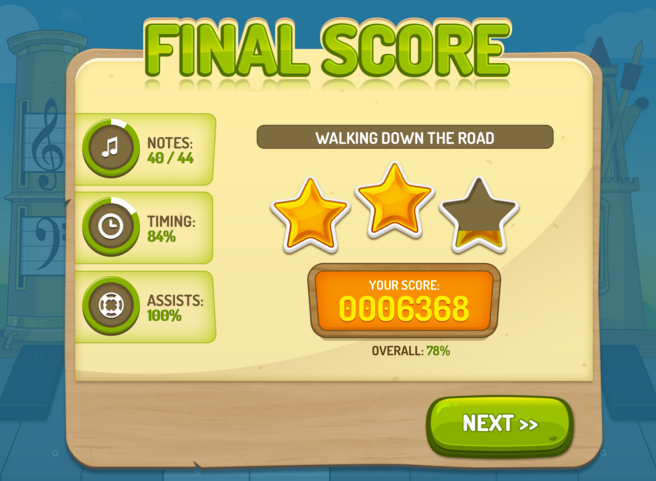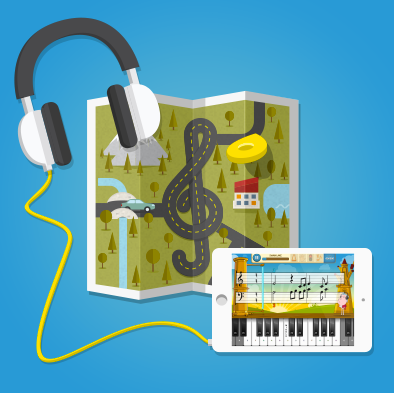The best piano keyboards for beginners
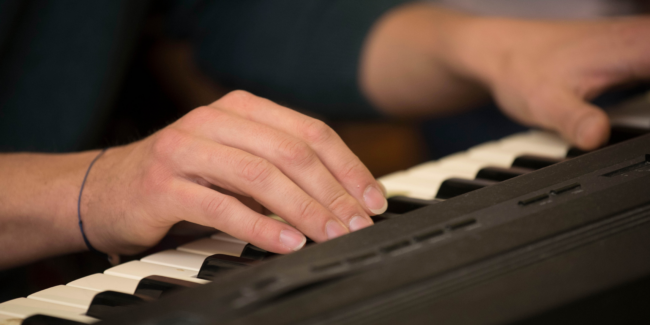
If you’re looking for the best keyboard piano for beginners, look no further! Simply Piano has the perfect instrument for you.
When choosing your keyboard, it’s essential to strike the right balance between cost and a beginner-friendly instrument that motivates you and provides room to grow.
There are all sorts of keyboards. Some prioritize portability, sound quality, and even aesthetics.
A lot goes into a keyboard. Each design offers unique qualities and capabilities that may be what sways your decision.
So let’s dive into the world of keyboards and find the best keyboard piano for a beginner.
The number of keys for a beginner.
Generally speaking, most keyboards come with 49, 61, 73, or a full 88 keys, like a piano. There is no correct number of keys per se, but you may develop a preference as you continue practicing. Until then, you might not know the type of music you want to play or what qualities you will most appreciate from your keyboard.
And there are qualities aplenty!
Keyboards come in various shapes, sizes, styles, with different numbers of keys and tools built in. You can learn a lot about playing the piano with just 49 keys. However, we recommend going with 88. You won’t be able to make the most out of all 88 keys when you begin. But that’s okay – you will have plenty of room to grow.
Weighted versus unweighted keys.
As a beginner, you will need to consider buying a keyboard with weighted versus unweighted keys. You have a third choice too – semi-weighted. Each of these keys offers unique qualities and changes how it feels to play.
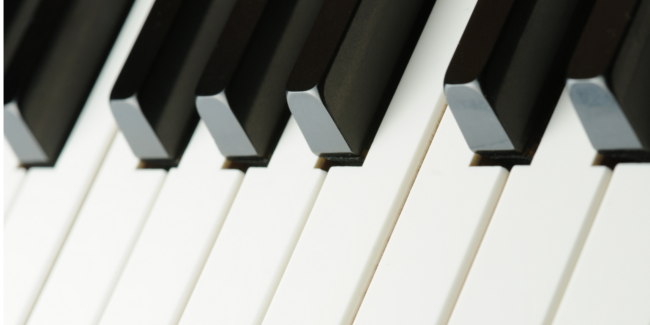
Unweighted.
There are a few advantages that come with unweighted keyboards.
You can all refer to keyboard pianos with unweighted keys as synth-action keyboards. Unweighted keys are generally made with plastic. Instead of weights, they use a spring mechanism that propels the light keys back in place – providing less resistance and softer touch.
Another type of unweighted key implements a touch-response system. These keys are sensitive to pressure (velocity-sensitive) and generate different sound volumes according to the speed and pressure you apply.
Keyboards with unweighted keys are lighter to carry around and transport too because, well – they’re unweighted.
Weighted.
Slightly more of a hassle to carry around.
These keyboards use weighted, synthetic ivory keys to emulate the acoustic piano.
Many piano players prefer weighted keys because of how they feel as you press down on them. After all, there is a tactile element to playing the keyboard too.
Weighted keys also provide you with more expressive power – the harder you press down on your keys, the louder and more intense the sound will be.
Why weighted keys are better.
Weighted keys are better because they provide a similar feel to a classical acoustic piano. As such, keyboards with weighted keys have greater articulation and sound control than keyboards with unweighted keys.
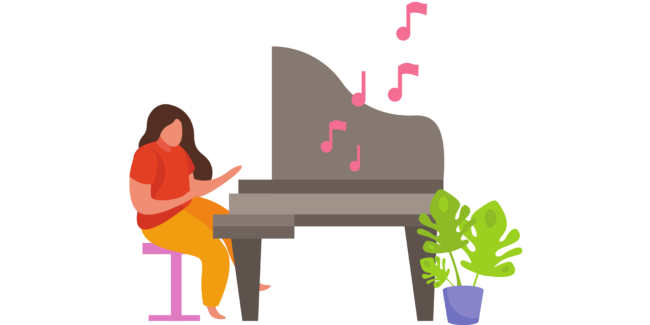
For instance, applying more pressure on a key produces a vastly different sound than using a softer touch. These subtleties can drastically affect the energy and emotion in music.
This will help you understand and feel the sensitivity needed to push down the keys with different levels of control.
Number of sounds.
Part of what makes the keyboard so fun to play and an excellent instrument for beginners is its number of sounds.
Keyboards can have from ten to 400 different sounds! This gives you the chance to explore a range of possible musical styles.
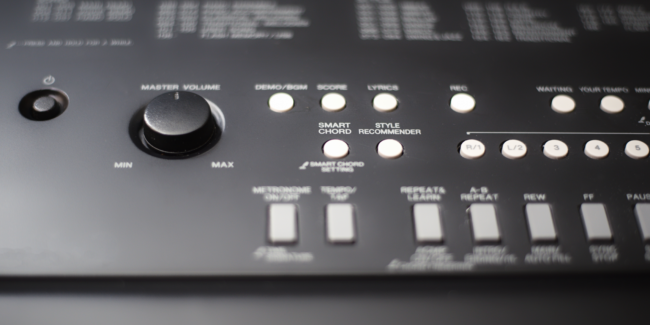
So if you’re feeling funky, you can adjust the settings and play funk music. Additionally, you can synchronize your sounds to mesh with other musicians because of the electronic nature of your keyboard.
The best keyboard piano for beginners.
Whether you’re just starting out or nearing the level of masterhood, it’s essential to be inspired by your instrument.
Playing on a keyboard that feels more like a toy than an instrument can negatively impact your experience. That’s why we recommend the following keyboard as the best keyboard for a beginner.
Introducing the Korg B2N.
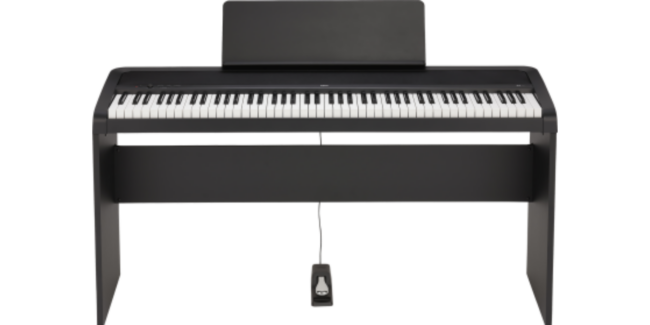
This keyboard has 88 semi-weighted keys on an NT (Natural Touch) keyboard.
The NT keyboard reproduces the touch of an acoustic piano, with heavier action in the low register and a lighter feel in the upper register.
Korg gives the right balance of beginner-friendly playability while allowing you to dip your toes into the intricate world of sensitive key strikes.
As far as aesthetics go, the Korg B2N makes most beginner keyboards look and feel cheap. For a portable keyboard, it’s on the larger side and costs just over $500.
The B2N comes with twelve different sound settings, from the electric organ to the harpsichord. These sounds create powerful and vibrant reverberations thanks to Korg’s latest piano engine.
Another helpful feature is the USB port that you can plug into various music software and hardware. That means you can create and record music from your tablet or phone!
Unfortunately, it doesn’t come with any pedals. However, you only need a sustain pedal for digital pianos and keyboards that you can find a separate pedal and plug into your keyboard.
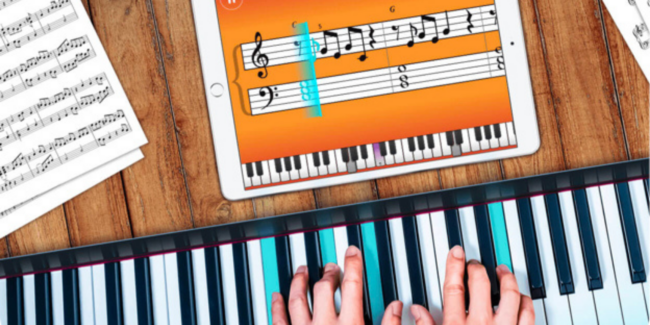
There’s a lot to consider when purchasing an instrument. Knowing what you want from your keyboard, the kind of music you want to play, the price, and its portability should all factor into your decision.
Regardless of what keyboard you choose, it’s ultimately a tool – a rather important one, to be sure – in the journey of learning and playing music.
Many tools can help you get better. It’s just about knowing where to look and what to look for.
Add some spice and speed up the process of your keyboard journey with Simply Piano!






